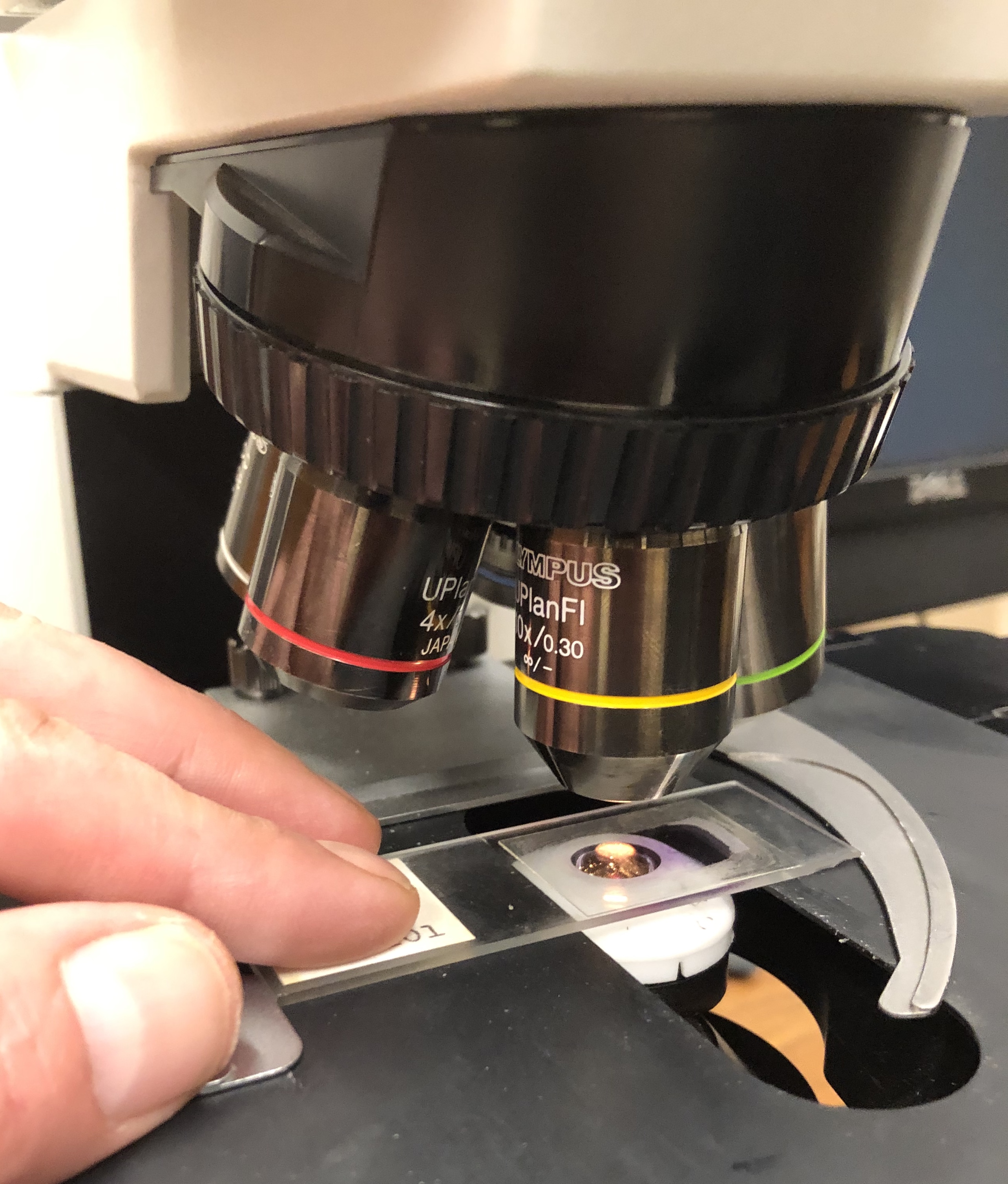|
Ferdinand Gumprecht
Ferdinand Adolph Gumprecht (March 18, 1864 – 1947) was a German internist born in Berlin. He studied medicine at the Universities of Heidelberg, Berlin, Göttingen and Jena, earning his doctorate at the latter institution in 1889. In 1890 he became an assistant at the Krankenhaus Friedrichshain in Berlin, followed by work at the pathological institute and at the medical clinic at the University of Jena, where he served as an assistant to Paul Fürbringer (1849-1930) and Roderich Stintzing (1854-1933). In 1895 he obtained his habilitation for internal medicine at Jena, receiving the title of professor in 1899. From 1900 onward, he served as medical counselor and ''medizinischer referent'' to the state ministry in Weimar. Associated eponyms * "Gumprecht's shadows": Synonym for smudge cells. * "Klein-Gumprecht shadow nuclei": Shadow nuclei observed in the peripheral blood smears of patients with leukemia. Named with Hungarian histologist Eduard Emmanuel Klein (1844-1925). ... [...More Info...] [...Related Items...] OR: [Wikipedia] [Google] [Baidu] |
Histologist
Histology, also known as microscopic anatomy or microanatomy, is the branch of biology which studies the microscopic anatomy of biological tissues. Histology is the microscopic counterpart to gross anatomy, which looks at larger structures visible without a microscope. Although one may divide microscopic anatomy into ''organology'', the study of organs, ''histology'', the study of tissues, and ''cytology'', the study of cells, modern usage places all of these topics under the field of histology. In medicine, histopathology is the branch of histology that includes the microscopic identification and study of diseased tissue. In the field of paleontology, the term paleohistology refers to the histology of fossil organisms. Biological tissues Animal tissue classification There are four basic types of animal tissues: muscle tissue, nervous tissue, connective tissue, and epithelial tissue. All animal tissues are considered to be subtypes of these four principal tissue types ... [...More Info...] [...Related Items...] OR: [Wikipedia] [Google] [Baidu] |
1864 Births
Events January–March * January 13 – American songwriter Stephen Foster ("Oh! Susanna", "Old Folks at Home") dies aged 37 in New York City, leaving a scrap of paper reading "Dear friends and gentle hearts". His parlor song " Beautiful Dreamer" is published in March. * January 16 – Denmark rejects an Austrian-Prussian ultimatum to repeal the Danish Constitution, which says that Schleswig-Holstein is part of Denmark. * January 21 – New Zealand Wars: The Tauranga campaign begins. * February – John Wisden publishes '' The Cricketer's Almanack for the year 1864'' in England; it will go on to become the major annual cricket reference publication. * February 1 – Danish-Prussian War (Second Schleswig War): 57,000 Austrian and Prussian troops cross the Eider River into Denmark. * February 15 – Heineken brewery founded in Netherlands. * February 17 – American Civil War: The tiny Confederate hand-propelled submarine ''H. L. Hunl ... [...More Info...] [...Related Items...] OR: [Wikipedia] [Google] [Baidu] |
Academic Staff Of The University Of Jena
An academy (Attic Greek: Ἀκαδήμεια; Koine Greek Ἀκαδημία) is an institution of secondary or tertiary higher learning (and generally also research or honorary membership). The name traces back to Plato's school of philosophy, founded approximately 385 BC at Akademia, a sanctuary of Athena, the goddess of wisdom and skill, north of Athens, Greece. Etymology The word comes from the ''Academy'' in ancient Greece, which derives from the Athenian hero, ''Akademos''. Outside the city walls of Athens, the gymnasium was made famous by Plato as a center of learning. The sacred space, dedicated to the goddess of wisdom, Athena, had formerly been an olive grove, hence the expression "the groves of Academe". In these gardens, the philosopher Plato conversed with followers. Plato developed his sessions into a method of teaching philosophy and in 387 BC, established what is known today as the Old Academy. By extension, ''academia'' has come to mean the accumulation, de ... [...More Info...] [...Related Items...] OR: [Wikipedia] [Google] [Baidu] |
Physicians From Berlin
A physician (American English), medical practitioner (Commonwealth English), medical doctor, or simply doctor, is a health professional who practices medicine, which is concerned with promoting, maintaining or restoring health through the study, diagnosis, prognosis and treatment of disease, injury, and other physical and mental impairments. Physicians may focus their practice on certain disease categories, types of patients, and methods of treatment—known as specialities—or they may assume responsibility for the provision of continuing and comprehensive medical care to individuals, families, and communities—known as general practice. Medical practice properly requires both a detailed knowledge of the academic disciplines, such as anatomy and physiology, underlying diseases and their treatment—the ''science'' of medicine—and also a decent competence in its applied practice—the art or ''craft'' of medicine. Both the role of the physician and the meaning of t ... [...More Info...] [...Related Items...] OR: [Wikipedia] [Google] [Baidu] |
Who Named It
''Whonamedit?'' is an online English-language dictionary of medical eponyms and the people associated with their identification. Though it is a dictionary, many eponyms and persons are presented in extensive articles with comprehensive bibliographies. The dictionary is hosted in Norway and maintained by medical historian Ole Daniel Enersen Ole Daniel Enersen (born March 14, 1943, in Oslo, Norway) is a Norwegian climber, photographer, journalist, writer, and medical historian. In 1965 he made the first ascent of the Trollveggen mountain in Romsdalen, Norway, along with Leif Norman .... References External links * Medical websites Medical dictionaries Eponyms {{online-dict-stub ... [...More Info...] [...Related Items...] OR: [Wikipedia] [Google] [Baidu] |
Hygiene
Hygiene is a series of practices performed to preserve health. According to the World Health Organization (WHO), "Hygiene refers to conditions and practices that help to maintain health and prevent the spread of diseases." Personal hygiene refers to maintaining the body's cleanliness. Hygiene activities can be grouped into the following: home and everyday hygiene, personal hygiene, medical hygiene, sleep hygiene and food hygiene. Home and every day hygiene includes hand washing, respiratory hygiene, food hygiene at home, hygiene in the kitchen, hygiene in the bathroom, laundry hygiene and medical hygiene at home. Many people equate hygiene with 'cleanliness,' but hygiene is a broad term. It includes such personal habit choices as how frequently to take a shower or bath, wash hands, trim fingernails, and wash clothes. It also includes attention to keeping surfaces in the home and workplace clean, including bathroom facilities. Some regular hygiene practices may be considered good ... [...More Info...] [...Related Items...] OR: [Wikipedia] [Google] [Baidu] |
Theodor Weyl
Theodor Weyl (8 January 1851 – 6 June 1913) was a German chemist and hygienist born in Berlin. He studied at the universities of Heidelberg, Berlin and Strasbourg, earning his doctorate in 1872 with a dissertation on animal and plant proteins. Following graduation he worked as an assistant in the physiology laboratory at Berlin, shortly afterwards becoming an assistant professor at the University of Erlangen. During his tenure at Erlangen he spent the winter of 1880–81 performing research on the electric organs of rays at the Stazione Zoologica Anton Dohrn in Naples. After several years in Erlangen, he returned to Berlin, where he focused on investigations of terpenes in a laboratory he established. Afterwards he remained in Berlin as a lecturer, also working as a scientist in Robert Koch's hygienic institute at the technical university in Berlin-Charlottenburg. With Heinrich Houben (1875–1940), the "Houben-Weyl Methods of Organic Chemistry" is named, a massive referenc ... [...More Info...] [...Related Items...] OR: [Wikipedia] [Google] [Baidu] |
Leukocyte
White blood cells, also called leukocytes or leucocytes, are the cells of the immune system that are involved in protecting the body against both infectious disease and foreign invaders. All white blood cells are produced and derived from multipotent cells in the bone marrow known as hematopoietic stem cells. Leukocytes are found throughout the body, including the blood and lymphatic system. All white blood cells have nuclei, which distinguishes them from the other blood cells, the anucleated red blood cells (RBCs) and platelets. The different white blood cells are usually classified by cell lineage (myeloid cells or lymphoid cells). White blood cells are part of the body's immune system. They help the body fight infection and other diseases. Types of white blood cells are granulocytes (neutrophils, eosinophils, and basophils), and agranulocytes (monocytes, and lymphocytes (T cells and B cells)). Myeloid cells (myelocytes) include neutrophils, eosinophils, mast cells, bas ... [...More Info...] [...Related Items...] OR: [Wikipedia] [Google] [Baidu] |
Leipzig
Leipzig ( , ; Upper Saxon: ) is the most populous city in the German state of Saxony. Leipzig's population of 605,407 inhabitants (1.1 million in the larger urban zone) as of 2021 places the city as Germany's eighth most populous, as well as the second most populous city in the area of the former East Germany after (East) Berlin. Together with Halle (Saale), the city forms the polycentric Leipzig-Halle Conurbation. Between the two cities (in Schkeuditz) lies Leipzig/Halle Airport. Leipzig is located about southwest of Berlin, in the southernmost part of the North German Plain (known as Leipzig Bay), at the confluence of the White Elster River (progression: ) and two of its tributaries: the Pleiße and the Parthe. The name of the city and those of many of its boroughs are of Slavic origin. Leipzig has been a trade city since at least the time of the Holy Roman Empire. The city sits at the intersection of the Via Regia and the Via Imperii, two important medieval trad ... [...More Info...] [...Related Items...] OR: [Wikipedia] [Google] [Baidu] |
European Journal Of Physiology
European, or Europeans, or Europeneans, may refer to: In general * ''European'', an adjective referring to something of, from, or related to Europe ** Ethnic groups in Europe ** Demographics of Europe ** European cuisine, the cuisines of Europe and other Western countries * ''European'', an adjective referring to something of, from, or related to the European Union ** Citizenship of the European Union ** Demographics of the European Union In publishing * ''The European'' (1953 magazine), a far-right cultural and political magazine published 1953–1959 * ''The European'' (newspaper), a British weekly newspaper published 1990–1998 * ''The European'' (2009 magazine), a German magazine first published in September 2009 *''The European Magazine'', a magazine published in London 1782–1826 *''The New European'', a British weekly pop-up newspaper first published in July 2016 Other uses * * Europeans (band), a British post-punk group, from Bristol See also * * * Europe (disambi ... [...More Info...] [...Related Items...] OR: [Wikipedia] [Google] [Baidu] |
Leukemia
Leukemia ( also spelled leukaemia and pronounced ) is a group of blood cancers that usually begin in the bone marrow and result in high numbers of abnormal blood cells. These blood cells are not fully developed and are called ''blasts'' or ''leukemia cells''. Symptoms may include bleeding and bruising, bone pain, fatigue, fever, and an increased risk of infections. These symptoms occur due to a lack of normal blood cells. Diagnosis is typically made by blood tests or bone marrow biopsy. The exact cause of leukemia is unknown. A combination of genetic factors and environmental (non-inherited) factors are believed to play a role. Risk factors include smoking, ionizing radiation, petrochemicals (such as benzene), prior chemotherapy, and Down syndrome. People with a family history of leukemia are also at higher risk. There are four main types of leukemia— acute lymphoblastic leukemia (ALL), acute myeloid leukemia (AML), chronic lymphocytic leukemia (CLL) and chronic myeloi ... [...More Info...] [...Related Items...] OR: [Wikipedia] [Google] [Baidu] |







